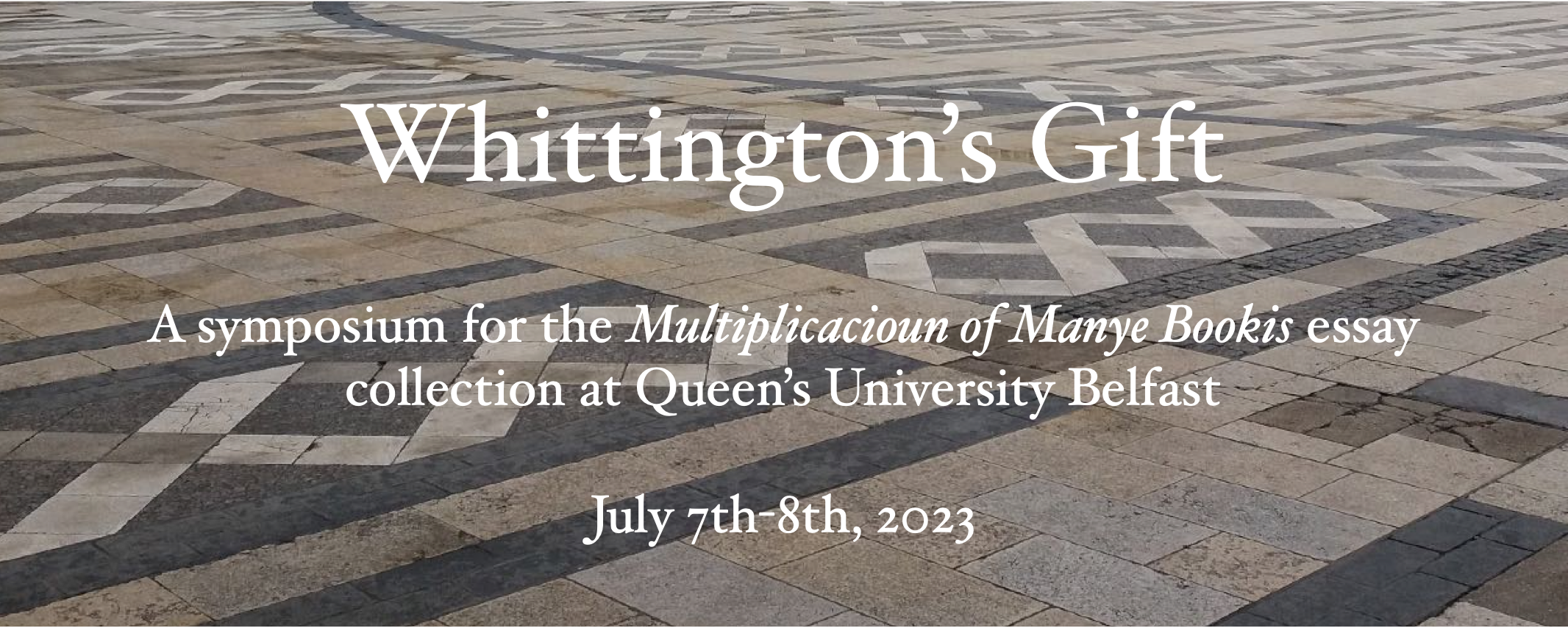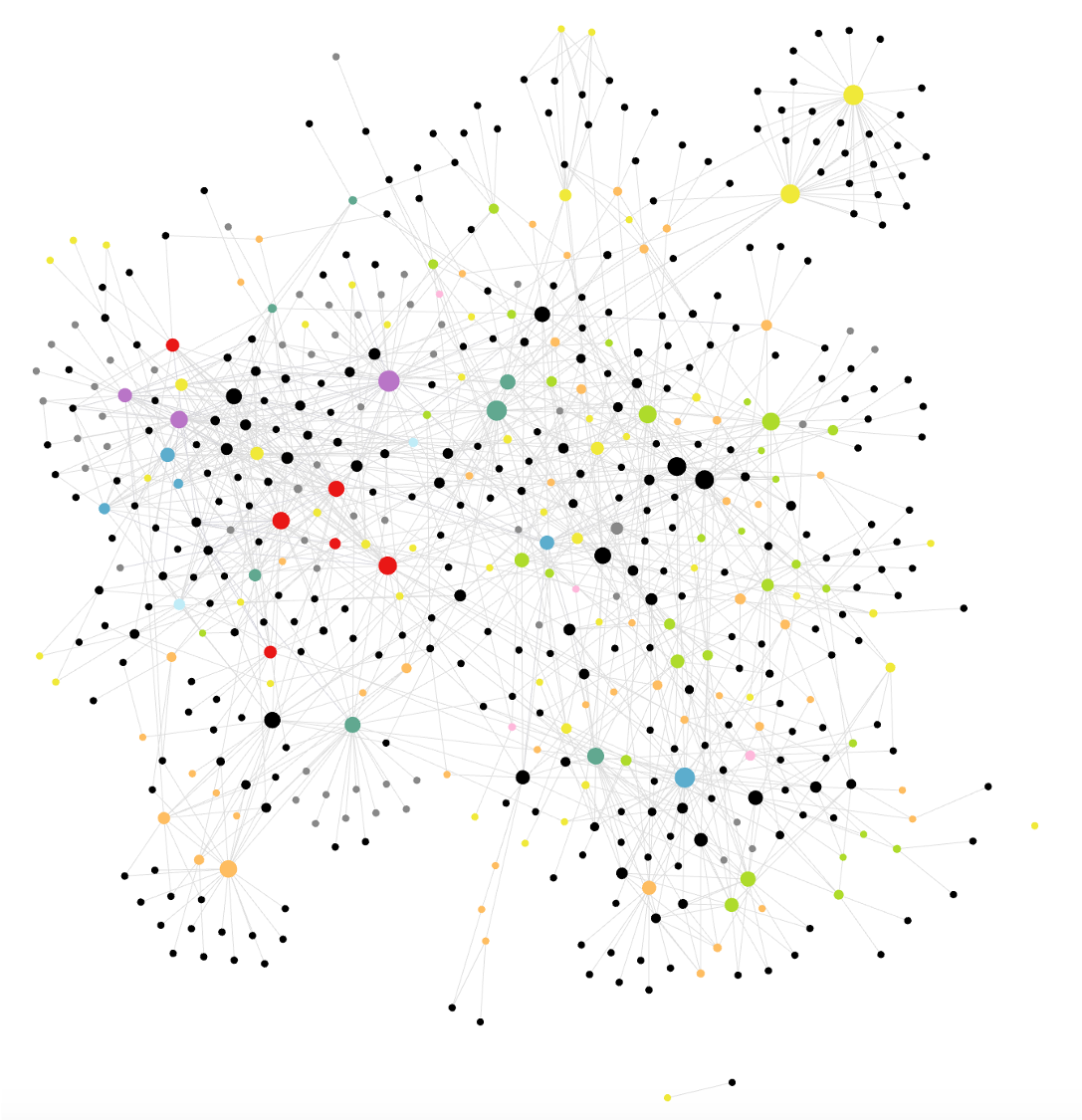
Multiplicacioun of Manye Bookis is an output of the Whittington’s Gift: Reconstructing the Lost Common Library of London’s Guildhall project, a Leverhulme Trust-funded collaboration between the University of Kent and Queen’s University Belfast.
Schedule
Friday 7th July
13.15-14.30 – Ryan Perry (Kent) and Stephen Kelly (Queen’s University Belfast): Welcome and Project Overview
14.30-15.00 – Michael G. Sargent (CUNY): “The Christocentric Interpolations and the London Manuscripts of Walter Hilton’s Scale of Perfection”
15.00-15.30 – Fiona Somerset (Connecticut): “Motivated Variation: The Versions of ‘Pride Wrath and Envy’”
Break
16.00-16.30 – Jennifer A.T. Smith (Pepperdine): “Additions and Corrections to Reginald Pecock’s Book of Faith”
Saturday 8th July
10.15-10.45 – David Lavinsky (Yeshiva University): “‘Offende not þi conscience’: Civic and Religious Contexts for London Common-Profit Books”
10.45-11.15 – Segolene Gence (Kent): “Breaking the Mirror of Holy Church: a case study of excerption in religious compilations”
11.15-11.45 – Rob Lutton (Nottingham): ‘“Commyning togider”: modes of religious discourse in heterodox networks and their implications for fifteenth-century English devotional miscellanies’
Break
12.45-13.15 – Benjamin Barootes (Memorial University of Newfoundland, Grenfell): “‘Byhold specialy in þe fyue mooste notable woundes’: Oxford, University College MS 97 and Devotion to the Five Wounds c. 1400”
13.15-13.45 – Sheila Lindenbaum (Indiana): “Theology and Spirituality at Whittington College: 1470-1509”
13.45-14.15 – Tristan B. Taylor (University of Saskatchewan): “Visualising the Reading Communities of the South English Legendaries”
Break
14.45-15.45 – Stephen Kelly and Natalie Calder (QUB): ‘Meke Reverence and Devotion’: A Reader in Late Medieval English Religious Writing – project anthology overview
If you would like to join us virtually, please contact Natalie at n.calder@qub.ac.uk for access.

